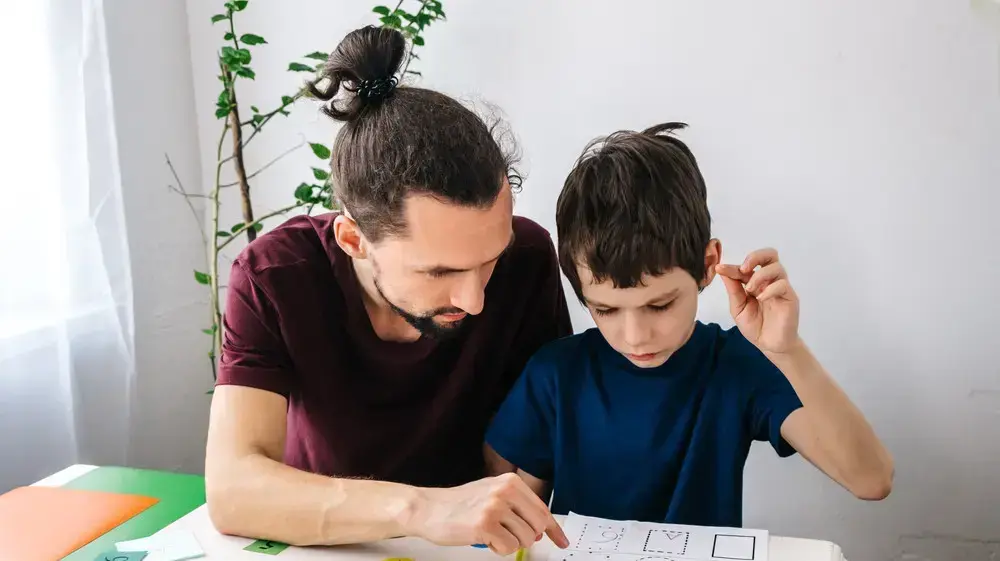Adolescents are in a vital moment of exploration (and explosion), going through two stages that, from one to another, there is an abyss.
They try to know who they are and it is natural for an emotional and, even at times, physical separation to occur with the family.
The psychologist and counselor Natalia Redondo affirms that adolescence is a time when the brain is in full development and the connections between the most emotional part and the most rational part are still being created: “For this reason, they have difficulties to recognize their emotions, they feel insecure, with self-esteem problems and this stress translates into intense feelings and sensations.
What makes its handling difficult because they do not have enough tools ”.
More information
Teens in summer: recommendations so that they do not get carried away by laziness 24 hours a day
"My daughter does not want to go down to the pool": these are the consequences of gordofobia in children
Literature professor José Luis Merino invites us to reflect: “At this time we all live intensely, to believe that only adolescents do it is not to look in the mirror.
Expressing emotions generates
likes
on social networks and may be the seed of this extreme externalization of emotions in the new generations ”.
For Merino, if not so long ago, the middle ground was the ideal model, "now it seems that if one has not had the worst day in the world or the best day in history, what he has lived does not interest anyone".
It is a stage of change, and not only for the adolescents themselves, but also for the parents who accompany them. “The first thing we need as parents is to understand what is happening and in what vital moment they are. It is a period in which roles are redefined, ”says Natalia Redondo. Adolescents need to explore their surroundings, they look for novelty and this makes them bond with their peer group and withdraw from family and environment. “Parents have to assume the new roles and at the same time not let ourselves be carried away by the negative emotions that this produces in us. It is something natural and that, by the way, does not only happen in the human species ”, says Redondo who considers that it is also the moment in which they learn to make their own decisions, to be autonomous and to manage independence.The counselor recommends that we “put ourselves in their shoes and think that we too did not know what decisions to make and we screwed up on more than one occasion, but you learn by trying”.
For the psychologist Marta Segrelles, there are times when the family does not validate the importance of the emotions or feelings of adolescents: “They seem to us to be exaggerated reactions, but it is that they do not handle the capacities that adults have, that is why it is important to guide and teach them how, to observe them from curiosity and respect and ask them: can I do something for you? ”. Boys and girls are trying to meet and find out who they are, that is why it is essential to show interest, “that we maintain a curious attitude to know who they are, what their tastes are, what they have fun with, their concerns and what concerns them ... all if they tell us what they consider to try not to judge them ”.Segrelles assures that in psychology adolescence is often treated as a second birth "since as children we want the acceptance of parents and adolescents from the peer group."
Jose Luis Merino points out: “As a teacher and as a father, I think it is important to leave space.
If someone is frustrated, do not rush to comfort them, but let them process it.
And then sit down and talk ”.
For example, when the teacher receives a bad answer in class, he asks them to go to the bathroom and wash their face.
"When they leave the classroom and come back in, things usually go much better."
We all need a margin and they even more.
Boys and girls can have thousands of followers and hundreds of comments but feel deeply alone: “Their
besties
—Best friends— on the least expected day they post a screenshot of a private conversation and ruin their social life; in addition, many parents are from 8 to 8 in the office and that is why they sign them up for endless activities ”. So loneliness is a common feeling at this stage. For Professor Merino, what they are most lacking is someone who feels face to face with them "and without looking at the clock tell them what's wrong, tell me, I'm not going to judge you or tell anyone about it." He assures that “if you are a teacher close to adolescents, many times they will tell you very long dramas that in a week they will have completely forgotten”, but consider that this time is not a badly invested time, “since what they are living in that moment is a real drama and you were the only one there. But also,they can tell you about real family problems in which you have to immediately ask for help and intervene ”. Therefore, listening and not turning your back is always the right option.
You can follow De mamas & de papas on
,
or sign up here to receive
our weekly newsletter
.





/cloudfront-eu-central-1.images.arcpublishing.com/prisa/B7F2F3HZ2JCUHDZJKAGKAXXPSU.jpg)





